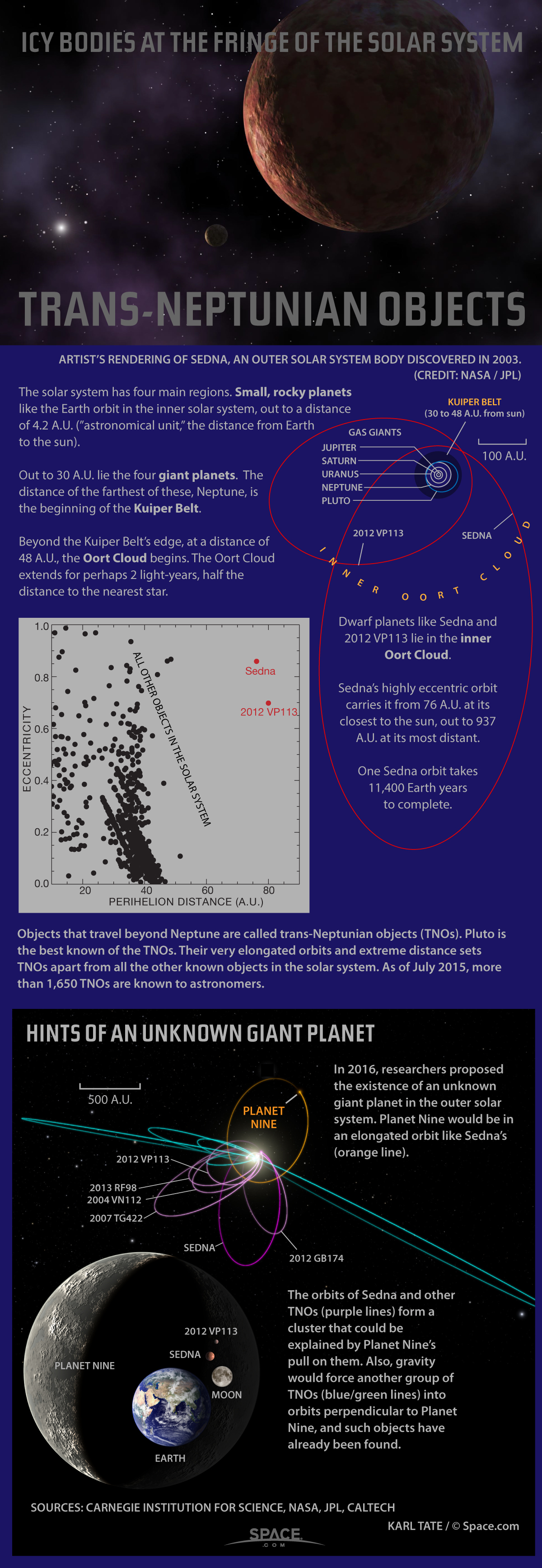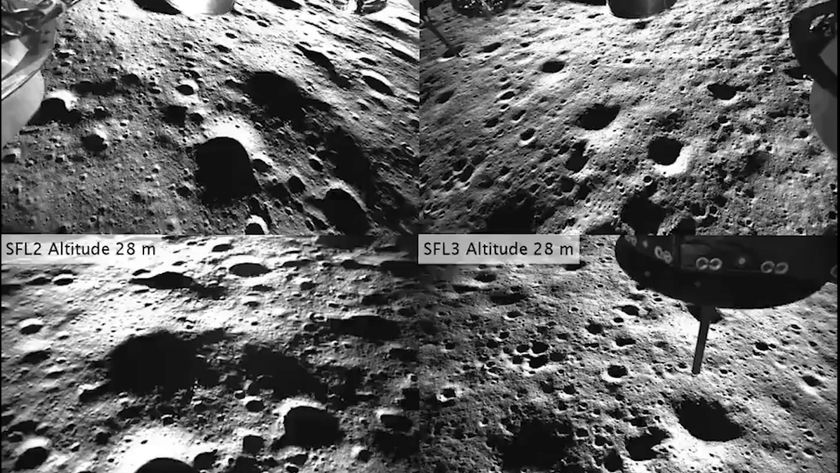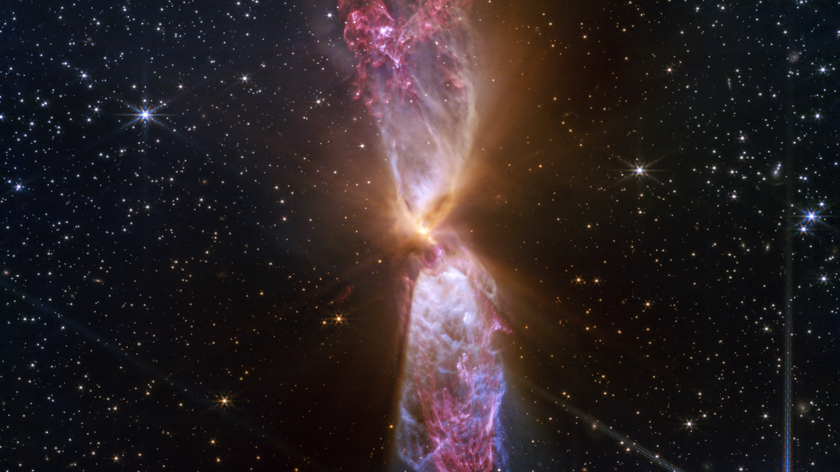Trans-Neptunian Objects in the Extreme Outer Solar System (Infographic)

The solar system has four main regions. Small, rocky planets like the Earth orbit in the inner solar system, out to a distance of 4.2 A.U. (”astronomical unit,” the distance from Earth to the sun).
Out to 30 A.U. lie the four giant planets. The distance of the farthest of these, Neptune, is the beginning of the Kuiper Belt.
Beyond the Kuiper Belt’s edge, at a distance of 48 A.U., the Oort Cloud begins. The Oort Cloud extends for perhaps 2 light-years, half the
distance to the nearest star.
But new discoveries suggest that this map is incomplete. Dwarf planets like Sedna and the newfound 2012 VP113 occupy a realm beyond the Kuiper belt scientists are calling the "inner Oort Cloud." Sedna and 2012 VP113 have very eccentric, or oval-shaped, orbits. They also have very distant perihelions (closest approach to the sun). This sets them apart from all the other known objects in the solar system.
Sedna’s highly eccentric orbit carries it from 76 A.U. at its closest to the sun, out to 937 A.U. at its most distant.
The object 2012 VP113 has a similar orbit. One Sedna orbit takes 11,400 Earth years to complete.
Anomalies in the orbits of Sedna and 2012 VP113 tantalizingly suggest that one or more giant planets 10 times the mass of Earth could orbit in the dark, frozen outer fringe of our solar system, 250 A.U.s or more from the sun.
Join our Space Forums to keep talking space on the latest missions, night sky and more! And if you have a news tip, correction or comment, let us know at: community@space.com.
Get the Space.com Newsletter
Breaking space news, the latest updates on rocket launches, skywatching events and more!

Karl's association with Space.com goes back to 2000, when he was hired to produce interactive Flash graphics. From 2010 to 2016, Karl worked as an infographics specialist across all editorial properties of Purch (formerly known as TechMediaNetwork). Before joining Space.com, Karl spent 11 years at the New York headquarters of The Associated Press, creating news graphics for use around the world in newspapers and on the web. He has a degree in graphic design from Louisiana State University and now works as a freelance graphic designer in New York City.


